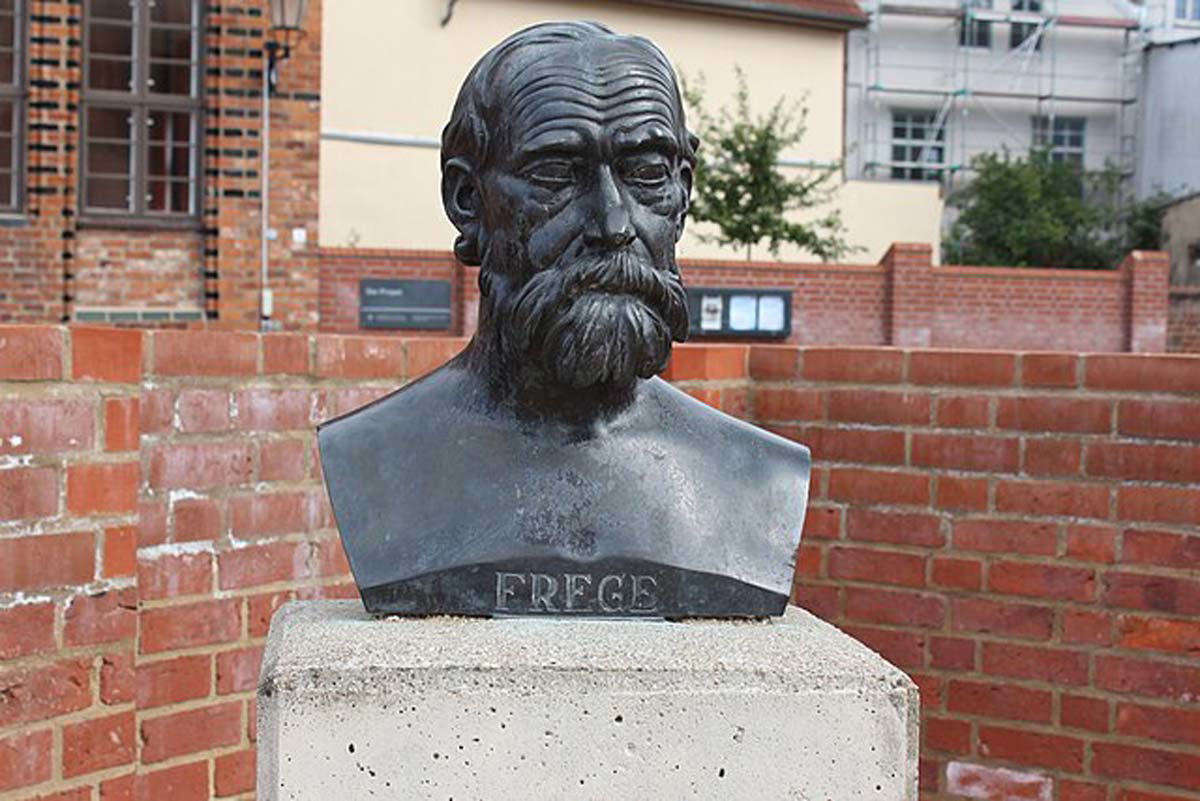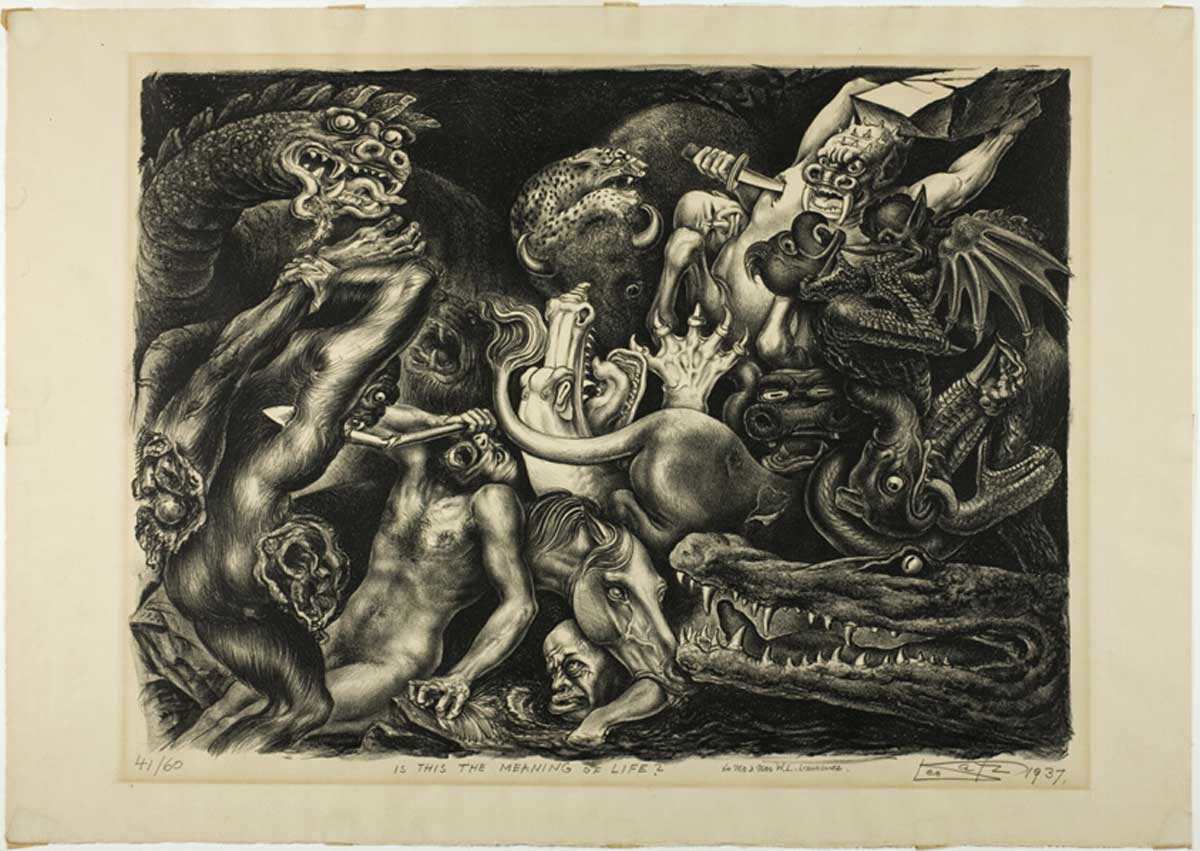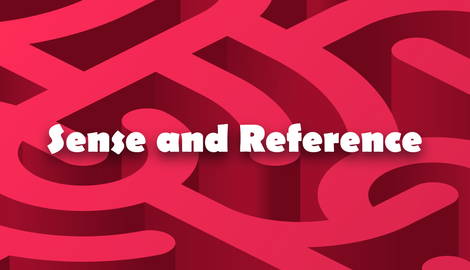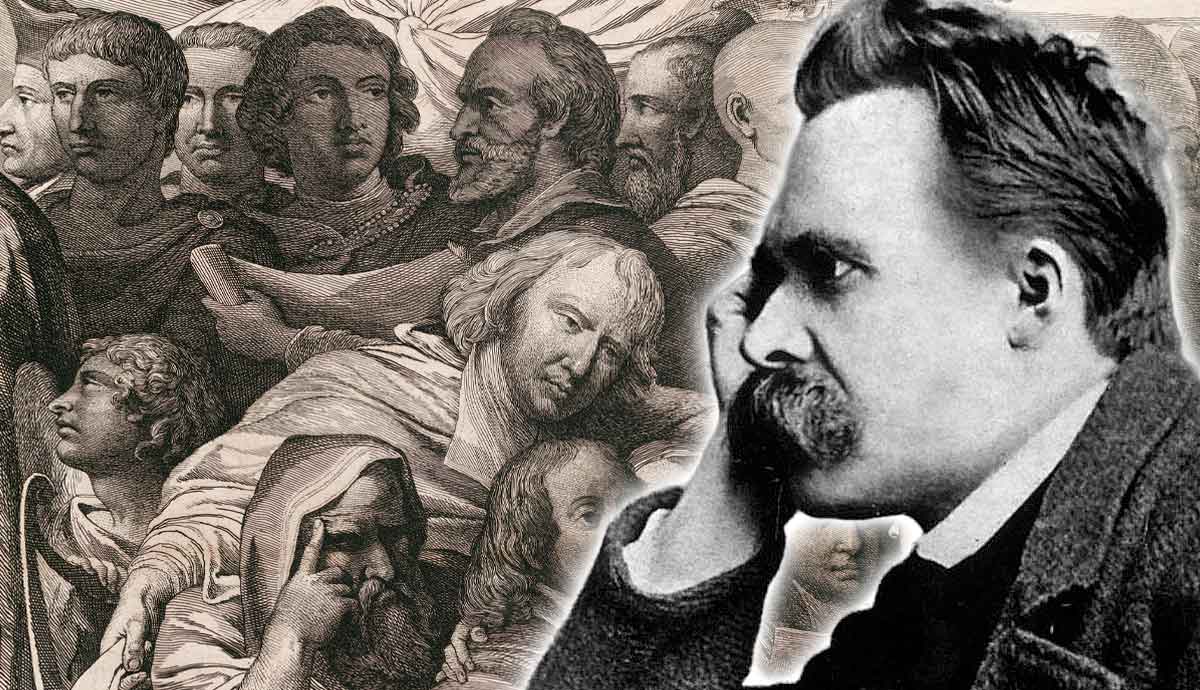
Analytic philosophy, which uses logic and mathematics to understand the world, is today’s dominant philosophical tradition in English-speaking universities. Gottlob Frege, a logician and mathematician, was one of the fathers of the analytic tradition. He made significant contributions to the philosophy of language despite his primary focus on logic and mathematics. Some of the most major of his contributions were the concepts of “sense” and “reference.” Let’s dive in to learn more about this great philosopher!
The Linguistic Turn

The 20th century in Europe was an incredibly intense time due to the political and military events that marked its first half. This led to a university culture with unprecedented engagement of students, academics, and intellectuals in current affairs. Some students of universities were creating groups that used philosophy, physics, mathematics, and logic as tools to understand the world and participate in political life–one such group was the famous Vienna Circle.
During this time, philosophy began to change methodologies. For centuries, most of those who identified as philosophers were concerned with metaphysics and understood it according to the Cartesian tradition. The metaphysical analysis of reality consisted either of empirical observation of the phenomena that regulated the world or a priori reasoning about such reality. In the 20th century, those traditions were abandoned in favor of a more scientific approach to philosophy.
This radical shift is known as the Linguistic Turn, as it is rooted in the rising interest in the study of language. In particular, philosophers, mathematicians, and scientists started claiming that natural language—the tool normally used to communicate and share knowledge—can present itself in misleading forms. It became apparent that misleading uses of language arose from a great number of philosophical problems.
Hence, it was claimed that an appropriate analysis of language through the methods and operations of logic would have provided a solution to the most prominent philosophical inquiries. According to this tradition—the early stages of analytic philosophy—language was meant to provide knowledge through logical operations.
Gottlob Frege

Gottlob Frege, a German logician and mathematician who lived between the late 19th century and the early 20th century, is renowned as one of the fathers of the analytic philosophical tradition—despite a lack of interest in philosophy he expressed throughout his life. While he claimed to be interested in logic and mathematics, one of his main academic concerns became analyzing language and meaning.
Therefore, though not directly concerned with the subject of Philosophy, he made an incredibly significant contribution to the field through his project of exploration of language and meaning. Together with Bertrand Russell, he was the first to consider exploring the nature of language as a mirror for understanding the world. Still, the success of his endeavor led many after him to pursue a similar goal. Frege’s methodology and interest in language were, therefore, unique at the time he was working but generated great interest in his successors and led to the development of the philosophical method and tradition of analytic philosophy.
The Problem of Names

According to the analytic philosophical tradition, many epistemological issues arise from linguistic misinterpretation. Natural language—the language we use daily to communicate—can be ambiguous and generate doubts about the nature of things. This would be apparent if we correctly analyzed the language that depicts them.
Frege uses examples within the world to exemplify this ambiguity. He begins by observing that the brightest start of the evening is referred to as “the evening star.” He then notes that the brightest star of the morning is referred to as “the morning star.” Finally, he concludes that the morning star and the evening star actually correspond to the same star, that is, the planet Venus. Hence, this is an instance of the existence of two names in natural language—morning star and evening star—to depict the same entity in the world.
Following this observation, Frege argues that it is easy to understand that an object named “a” is the same as an object named “a,” that is, “a=a.” For example, it is straightforward to claim that the evening star is the evening star, John is John, and Batman is Batman. However, as explained by the case of the morning star and the evening star, different names in natural language sometimes refer to the same entity in the world. Such an instance would be represented by the logical form “a=b,” where “a” and “b” consist of different names depicting the same entity in the world.
Other practical examples of this would be “John is the Philosophy professor” or “Batman is Bruce Wayne.” These statements are as true as their corresponding statements of the form “a=a.” However, they are not as trivial as the previous ones, as they provide a piece of information potentially unknown and relevant for reconstructing an adequate picture of reality. Therefore, it remains to question how this fact could be explained, given that both statements of the form “a=a” and “a=b” are true and identical in their reference.
Sense and Reference Distinction

In one of his most renowned papers—Sinn and Bedeutung, translated in English as On Sense and Reference—Frege develops the concept of sense and reference in relation to names to overcome the identity problem outlined in the preceding paragraph.
The issue consists of the fact that identity statements of the form “a=a” and “a=b,” provided that they have both been proven as true as “a” and “b” are two different names to depict the same entity in the world, cannot be considered as equivalent in meaning. As pointed out above, stating “the morning star is the morning star” is, in fact, a tautologous observation, while stating “the morning star is the evening star” is relevant to a better understanding of astronomy. The two statements are both true and refer to the same concept but are not identical, as the speaker’s communicative intent when using one or the other is inherently different.
Here, Frege uses the concept of sense and reference to explain the above puzzle. With reference, he intends the entity in the world depicted by the name. With sense, he defines the features of meaning that a name entails in the particular context and form in which it is used. Hence, while “Bruce Wayne,” “Batman,” or “the man with the black cape” all have the same reference, i.e., they depict the same entity in the world, they would all differ in sense, as the connotations of the entity that they provide are inherently different.
Frege exemplifies this distinction through the figurative example of observing the moon through a telescope. The object of our observation—the reference—would be the moon. However, we are not actually observing and describing the moon itself but rather a version mediated by the lens of the telescope, i.e., its sense. This is meant to show that, when using natural language, a mediation process must occur between the actual reference of the names we use and the sense we attribute to them in context. Through this distinction, it becomes apparent that two names with the same referent in the world generate semantically different statements because the names differ in sense despite sharing their referent.
Frege’s Heritage

Despite not defining himself as a philosopher, the article expounded on Frege’s countless contributions to the field of philosophy. To him, the foundation of the branch of philosophy of language is often attributed. This further developed into linguistics thanks to the contributions of others such as Chomsky, Saussure, and Grice, to name a few.
Additionally, Frege’s contribution to logic is undeniable. He is renowned for expanding logic from only propositional to predicate logic—allowing for much better translations. With this, he discovered the existence of a new logical language and determined great advancements in the field. These developments in logic also allowed philosophers to start using logical language to work towards the solution of major philosophical inquiries through the development of the branch of analytical philosophy.
Finally, the influence and impact that Frege has had on his contemporaries must be mentioned. He was a great source of inspiration for Bertrand Russell, who himself inspired Frege. Additionally, it was Frege who recommended that Ludwig Wittgenstein meet Bertrand Russell to pursue studies in philosophy. This allowed the formation of an undeniably successful pair, 20th-century, which generated works that determined great philosophical advancements in 20th-century analytical philosophy.
Hence, while it might be true that Frege did not consider himself a philosopher, his contributions to the field are so extensive that he must be conside










